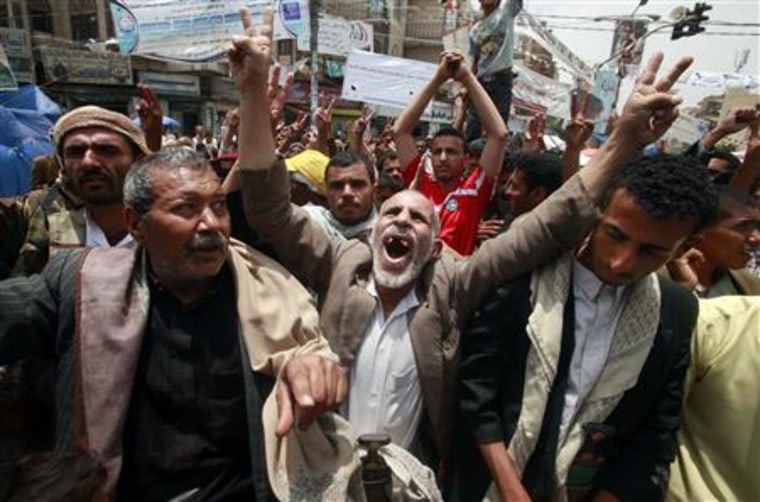Fighting between government forces and opposition supporters erupted in Yemen's capital Sanaa Monday, killing six people, opposition sources said.
The fighting was the first to break out in Sanaa since President Ali Abdullah Saleh flew to Saudi Arabia for treatment after sustaining severe burn wounds when an attempt to assassinate him was made in June.
One clash began when demonstrators seeking to increase pressure on Saleh to quit marched outside a square where they have been camped for months, said the sources, who declined to be identified.
"Hundreds of youths marched out of the sit-in area, but were confronted by security forces and gunmen in civilian clothes who fired on them. They killed one protester and wounded eight others," said one source.
In northern Sanaa, a family of five was killed by shelling during clashes between Republican Guard forces and pro-opposition tribesmen, opposition and tribal sources said.
Opposition supporters have grown increasingly frustrated as daily demonstrations, now in their sixth month, have been unable to shake loose his grip on three decades of power.
Pressure on Saleh
The United States and Saudi Arabia, both targets of foiled attacks by Yemen-based al-Qaida in the Arabian Peninsula, have tried to lessen the turmoil by pressing Saleh to accept a transfer of power plan put forward by Gulf Arab countries.
Saleh has said he would return to Yemen to lead a dialogue with the opposition and oversee a transition. Critics say this is a stalling tactic.
In a letter published in state-backed newspapers Monday, Saleh said the country needed a national dialogue to overcome its political crisis.
"We stress the importance of dialogue that depends on peaceful means to solve our problems no matter how difficult and complicated they are, just as we stress solving our differences through democratic methods," he said.
Saleh's stance would distance him further from the Gulf transition plan.
